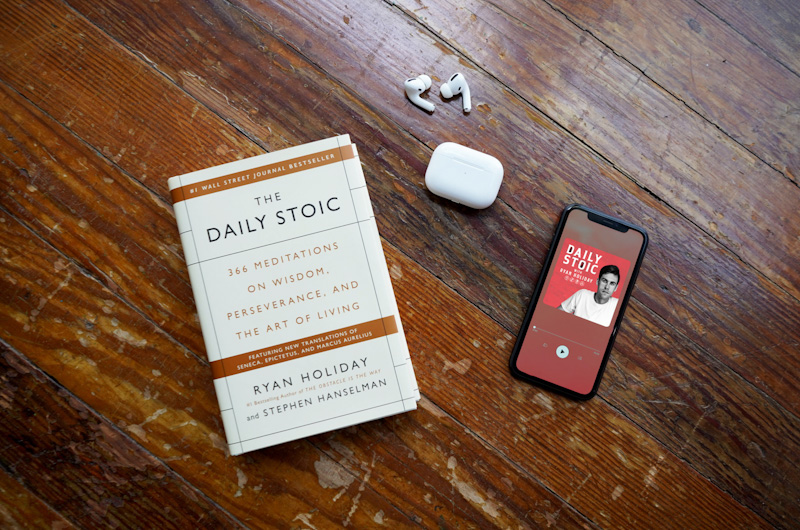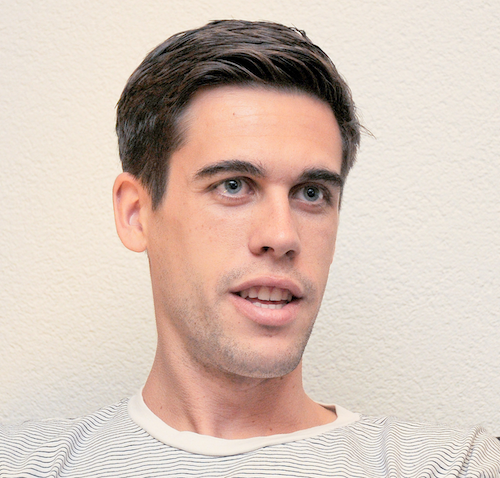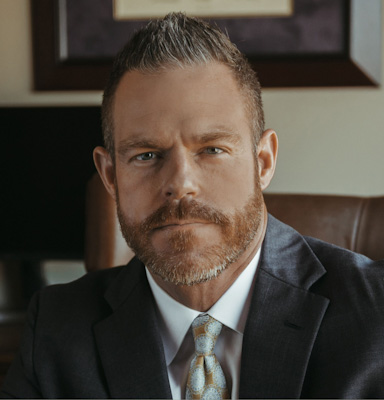The public defender approach to personal life

Image courtesy of Ryan Holiday.
I started my legal career in the Oklahoma County Public Defender’s Office. During one of my 1L first-semester classes, the Oklahoma County public defender and the Oklahoma County district attorney spoke with my section. They conveyed the opportunities available in their offices and explained the application process. I knew from the beginning of law school that I wanted to practice criminal defense, so I showed up at the PD’s office the next day. The intern coordinator kindly told me to wait until I had at least finished my first round of final exams.
So I showed up the Monday after I finished.
I practiced there with my limited license throughout law school. I learned a great deal about negotiations and litigation; after all, at that time, we were basically given our own docket and let loose. But the gig wasn’t simply beneficial from the practical experience perspective; it also helped me learn to balance empathy and understanding, alongside advocating with aggression.
‘Can You Fight to See Their Side?’
My regular readers know that I am a practicing, struggling Stoic. Aside from reading the classical literature, I start every morning listening to a couple of stoic-themed podcasts. One of those I’ve previously written about is Ryan Holiday’s The Daily Stoic.
Because this is a philosophy I’ve been entrenched in since my undergrad studies, much of what he has to offer is reiterating ideas and passages I’m already familiar with. Still, repetition helps feed contemplation, and I enjoy the comfort of continuity. Nevertheless, on many occasions, he’ll offer an analogy that helps me view the practice from a different angle.
That happened recently regarding his installment titled “Can You Fight to See Their Side?”
Holiday begins by discussing how Seneca was evidently frustrated by others. Some of that was based on his role in society at the time, but a significant portion was also simply due to the timeless and common occurrences of living amongst fellow humans. As he explains, “They are prone to make us angry—especially if we impute the least charitable motivations on the other party.” He then goes on to list various suspicious and derogatory depictions that we’ve all had regarding individuals we deal with daily … the common thread being that it is easy to look at someone else’s actions as coming from a less-than-kindhearted origin.
He notes that, as Seneca has taught, we must resist the temptation to view other people’s actions as coming from a place of negativity. He proposes that we instead be more diligent in viewing others’ motivations in the light most beneficial to benevolence. Consequently, Holiday suggests that we consider other’s actions from the perspective of a public defender, noting Seneca has explained how we should “plead the case of the absent defendant despite our own interest.” We should “take the time to act as if we were trying to help them escape punishment from the judge and jury that is the emotional and vindictive part of our mind.”
“Don’t just fight to see the worst. Fight to see their side.” Only then can we start to focus on the things we can actually control: our own responses and behavior.
 Ryan Holiday. Photo by Luiz Berengue, CC-BY-SA-2.0, via Wikimedia Commons.
Ryan Holiday. Photo by Luiz Berengue, CC-BY-SA-2.0, via Wikimedia Commons.
Being curious instead of suspicious
I’d imagine most practicing attorneys can relate to the cynical disposition many of us find ourselves fighting on a day-to-day basis. We are taught to be suspicious and conditioned to refrain from taking most things at face value. And while that may serve us well in a conference setting or the courtroom, that general approach can lead to plenty of negative implications for our personal lives.
But that’s part of the work-life struggle we all battle … right? It doesn’t have to be.
Now, I don’t want to come off as holier-than-thou by any stretch of the imagination. I’m as suspicious and cynical as the next attorney—if not more so at times—but at least I know the potential issues that can cause. Consequently, I’ve tried to make a concerted effort to be curious instead of suspicious.
That might sound “hokey” to a certain degree, but it’s an excellent approach to take in your professional and personal life. If someone cuts you off on the highway or rides your tail honking, be curious as to why they were in a hurry; maybe they’re rushing to the hospital. If an adversary in court treats me poorly, I try to think about the underlying reason; perhaps they fought with their child while dropping them off at school right before work.
It’s far from easy to take this approach in the moment, and I’m just as guilty as the next person when it comes to letting my emotions get the best of me. But I find that when I take a step back and try to compose myself, asking questions instead of providing answers, I can sometimes empathize with others before drawing a negative conclusion.
Using compassion and empathy to access vulnerability
Still, that mindset is only half the battle. I’ve learned throughout the years that, historically, one of my most significant weaknesses has been my inability to allow myself to be weak. Whether that notion of “weak” is a construct I’ve created in my own mind or something that I fear others may think about me, I’ve yet to figure out.
Nevertheless, some of the energy I receive from others (that I interpret as unfavorable) is possibly due to my outward expression. I can’t count the times I’ve been told I look like a “killer,” a “pit bull,” or some other tenacious term. Apparently, I have a particular type of “resting face.” Some of my clients have told me it conveys confidence. While that might be good for the courtroom, it can also be detrimental outside of the arena.
I used to tell myself this “stone-faced” persona was probably due to my almost permanently furrowed Neanderthal-like brow. In other words, it wasn’t my fault. As I began to pay more attention and really listen to others though, I learned that I just don’t smile all that often, and this particular mannerism can project a somewhat flat affect.
There’s a chance it stems from the remnants of my desire to not appear weak. I don’t feel that way so much these days, but I know that was something I manifested from a young age, as I most likely built up barriers to “protect” myself. I’m sure some of those barriers eventually became habits and general dispositions I portrayed unconsciously. With that in mind, and as silly as it may sound, sometimes I just remind myself to smile.
That simple movement of my facial muscles can convey openness and vulnerability. That vulnerability allows others to share the same emotional availability in turn. I’ve found that when others feel more comfortable and vulnerable, their actions and appearance come off in a way that I generally process as less dubious. That allows me to stave off some of my suspicions from the start.
It’s a self-fulfilling prophecy, after all. If we feel that we need to protect ourselves from the negativity of others, we will portray a defensive and guarded character. That character can easily lead to others feeling the same way and acting in kind. Round and round she goes.
We should instead start with the premise of giving others the benefit of the doubt instead of doubting their benefit.

Adam Banner
Adam R. Banner is the founder and lead attorney of the Oklahoma Legal Group, a criminal defense law firm in Oklahoma City. His practice focuses solely on state and federal criminal defense. He represents the accused against allegations of sex crimes, violent crimes, drug crimes and white-collar crimes.
The study of law isn’t for everyone, yet its practice and procedure seems to permeate pop culture at an increasing rate. This column is about the intersection of law and pop culture in an attempt to separate the real from the ridiculous.
This column reflects the opinions of the author and not necessarily the views of the ABA Journal—or the American Bar Association.



